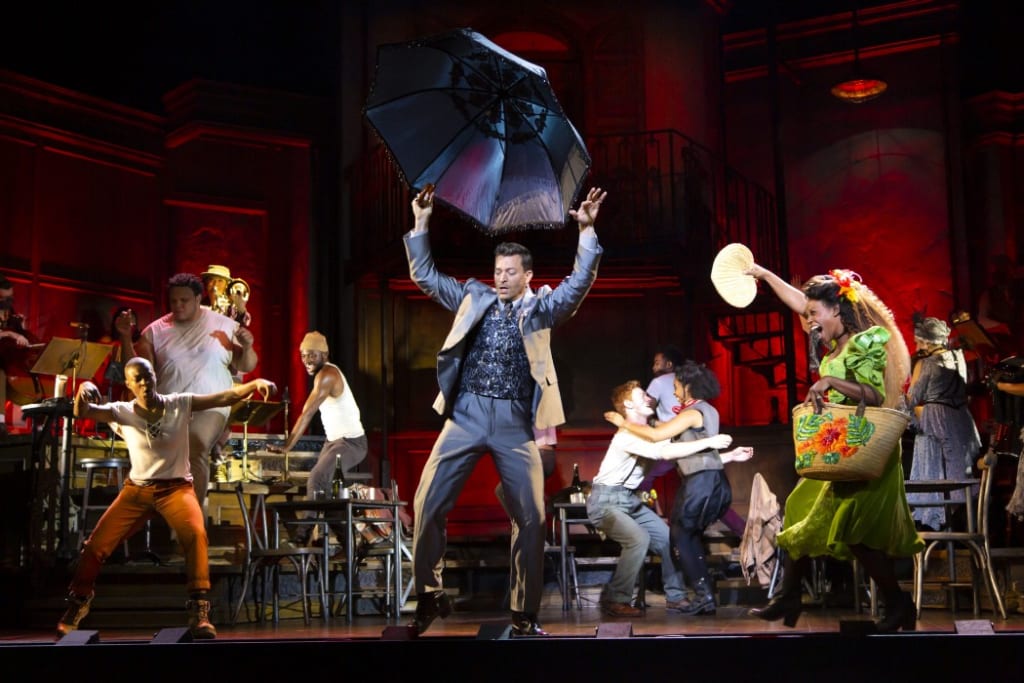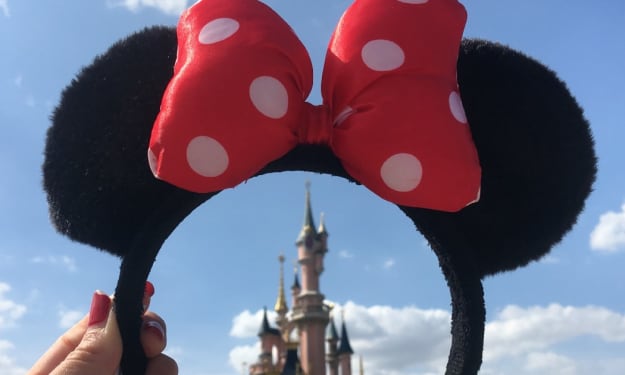Hadestown Is Thee Musical To Listen To For Climate Anxiety
This retelling of Orpheus and Eurydice has a political message relevant for our times.

Climate Change is terrifying. Even following the news around it is exhausting. Every day reveals new horrors about rising seas, vanishing resources, and diminishing crop yields. Our political leaders have not responded to this threat appropriately, and this negligence has left a lot of us with anxiety about the future.
For climate activists, or even just those worried about our planet's ecosystem (sadly not enough people at the moment), there is a bitter truth underpinning all of our efforts: we could devote the remainder of our lives to fighting this necessary problem, and still, lose. You might reduce your plastic and waste, lobby your leaders, engage in direct, confrontational action, and still wake up in twenty years wondering where it all went wrong?
No musical highlights this tension more than Hadestown — the modern retelling of the tragic love story between Orpheus and Eurydice, with a modern twist. It's a must-listen that explores the theme of how to keep fighting in spite of defeat.
The Breakdown
For those who are unfamiliar with this tale, it's relatively simple. A poet named Orpheus falls in love with the muse Eurydice, but unfortunately, she dies shortly after the two of them get married (the when and how depends on the retelling). A determined and grief-stricken Orpheus travels to the underworld to retrieve her soul.
This feat would generally be impossible, but Orpheus strikes a bargain with Hades, Lord of the Underworld. He can travel back to the surface with Eurydice, but he cannot look back at her as they travel to the land of the living — if he does, she must return to the underworld alone. And unfortunately, as they are approaching the exit, Orpheus does look back, and well, the rest, as they say, is history (or, in this case, myth).
Hadestown is the same story, but it has made major differences that impact how we feel about the characters. Orpheus is not just a musician and an adventurer but a dreamer trying to change things by singing a song that will "bring the world back into tune." Eurydice's death is depicted with more agency than in the original tale. Persephone, the Goddess of Spring (who in another myth is violently taken from her mother Demeter by Hades), is in this version revealed to have initially been in love with the God of Death.
Overall, Hadestown is more about the characters than the outcome. It does not conceal the fate of its plot at all— that would be hard to do for a 2,600-year-old myth. It instead begins by telling the viewer exactly what they should expect. "It's a sad song," happily sings Hermes, the herald of the Gods and the play's narrator, "It's a tragedy" (Road to Hell).
Our protagonist's defeat at the hands of Hades is an inevitability, but the point is not about his victory or failure. The narrative instead decides to focus on Orpheus's struggle to change things. "It's a sad song," reprises Hermes after Orpheus has lost his love. "But we sing it anyway" (Road to Hell — reprise). The whole point of Hadestown is about fighting in the face of impossible odds. It is a love letter to fools trying to change the world.
While the force Orpheus might be fighting against is Hades, the play metaphorically links the God of the Underworld to the neoliberal economic order that has wrecked our environment. I am, of course, referring to neoliberalism, our current economic system, which tries to use market forces to dictate all human interactions. Hades is depicted in this iteration as a heartless businessman who has built a foundry to manufacture automobiles and other goods (Chant). He is all about contracts and profit. Hades is working the residents of the underworld into numbness, and he's pretty brutal about it. He directly mentions the need to quell riots (Hey, Little Songbird).
In Why We Build the Wall, one of the most chilling songs in the musical (and one of my personal favorites), he describes the need for his people to build a wall to keep out an "other." "Why do we build the wall, my children, my children?" he asks the souls he has enslaved to build a wall in his underground "necropolis." The answer is to "keep out the enemy," and the enemy is "poverty."
This economic mindset Hades embodies is linked rather explicitly to environmental collapse. Hades recalls Persephone (the force responsible for Earth's change of seasons) to the underworld earlier every year to the point where Eurydice remarks that she cannot remember the last time she has seen a spring or fall (Come Home With Me).
Similarly, Persephone remarks that she is disgusted by Hades' industrialization, singing, "It ain't right and it ain't natural" (Chant). We are meant to take this phrase literally because Persephone, as a force of the seasons, speaks for nature itself. Hades is not just hurting the citizens he rules, but the Earth as well.
Therefore in Hadestown, we don't just have a modern retelling of the classic myth. We have a story that replicates the problems of the current day — neoliberalism, climate change, etc. — and tells its viewers that regardless of the outcome, what's important is to keep fighting these toxic institutions.
Conclusion
In We Raise our Cups, the last song of the musical, Persphone, talks about the play we've just watched, singing: "Some birds sing when the sun shines bright. Our praise is not for them. But the ones who sing in the dead of night. We raise our cups to them."
Even though Orpheus failed in his goal of bringing Eurydice back to the land of the living, Persphone praises him for fighting anyway. It's easy to fight when you know that victory is assured, but when you are facing impossible odds, that's when the struggle is perhaps the most important. Some may call this mindset naive, but when you believe your cause to be vital, those "foolish" losses can set the stage for more significant victories.
Right now, climate change is that "impossible" fight. Pollution from unsustainable industries is wrecking our world. Most animals we know of today will probably go extinct. Entire biomes and cultures will blip out of existence in under a decade. This loss is a staggering and depressing thing to contemplate. Not just the environmental collapse but also the weight of the forces preventing us from stopping this fate from coming to pass (e.g., pro-business politicians and executives like Hades who are placing financial gain over the health of our planet).
In all likelihood, we might fail to stop them, but that doesn't mean we shouldn't try to fight this battle anyway. After all, failure isn't a certainty either. As Orpheus would say to his critics: "who are they to say what the truth is anyway?"
This musical reminds us that it's the struggle we have to devote ourselves to, not the inevitability of victory or failure. If you want a musical that will help sustain you during the tumultuous decade ahead and "see how the world could be in spite of the way that it is," then get yourself down to the railroad tracks and head over to Hadestown.
About the Creator
Alex Mell-Taylor
I write long-form pieces on timely themes inside entertainment, pop culture, video games, gender, sexuality, race and politics. My writing currently reaches a growing audience of over 10,000 people every month across various publications.






Comments (1)
Thank you for giving me yet another reason to love this musical. I was already entranced with it because of the myth and the music, but you totally called it about the climate change discussion. :)